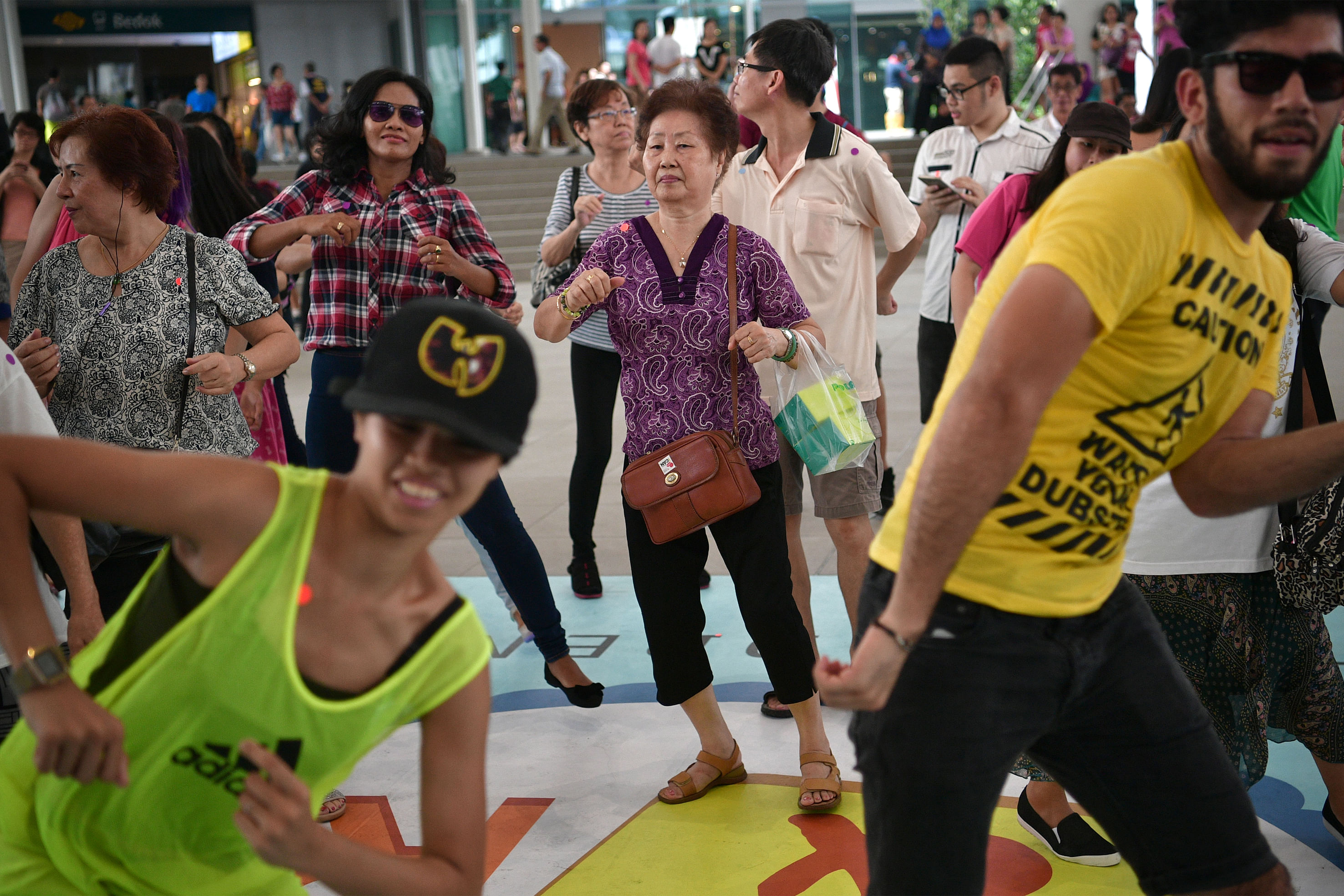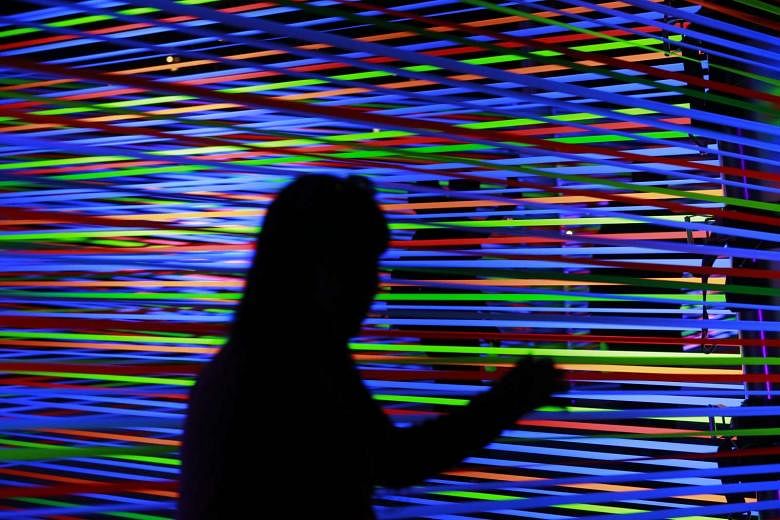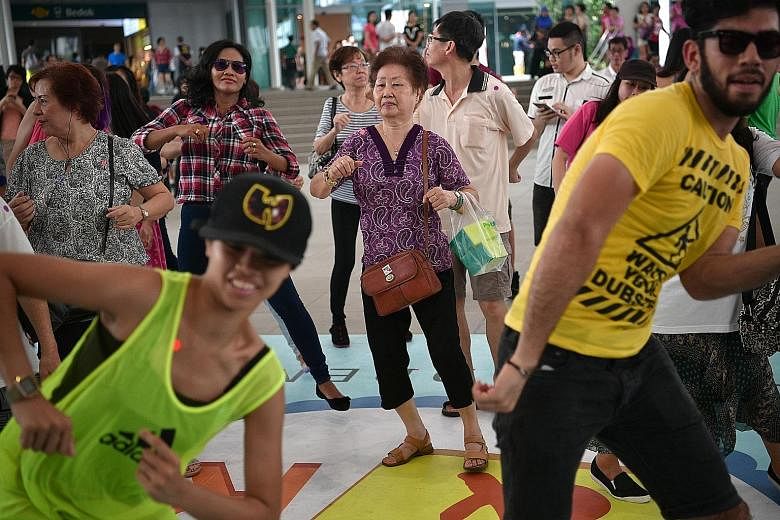Yesterday's debate was an apt way to end eight days of scrutiny by Parliament of the Government's plans for the next financial year that starts on April 1.
It began with a discussion on ways to keep Singaporeans healthy in mind and body, and ended with a discussion on the role of the arts in helping society thrive.
It spanned familiar ground for this Government - the supply of hospital beds, nurses' training, campaigns against obesity and a law to ban smoking for those below age 21 - but also stretched to the outer reaches, where the avant-garde and experimental arts reside.
The sitting started on a light note, with Dr Chia Shi-Lu (Tanjong Pagar GRC) quoting the late American comedian George Burns, who liked to say, "I look to the future because that's where I'm going to spend the rest of my life".
Dr Chia did so to stress that good health is to a large extent a choice: "We reap what we sow; the lifestyle decisions we make have a significant impact on our health in later life. We cannot choose our parents and so our genetic make-up is predetermined. But we can choose how we live our lives."

The Ministry of Health(MOH) wants individuals to take charge of their health, and will help them through a slew of programmes to spur lifestyle change when it comes to health checks, diet, exercise and sleep. These are linked to the Government's war against diabetes launched last year.
Yesterday, Health Minister Gan Kim Yong told the House of a worrying rise in obesity among younger Singaporeans aged 18 to 39, with the obesity rate doubling in two decades from 4.2 per cent in 1992 to 8.4 per cent in 2013.
"This is worrying as obesity is a key driver contributing to the diabetes burden in Singapore. Based on projections, one in three Singaporeans will develop diabetes in their lifetime. Obesity and diabetes are risk factors for heart disease and stroke. If we do not address these risk factors early, the progress we have achieved over the years will be eroded," he said.
He sought to rally the troops by urging everyone to keep in mind three Rs - refrain, reduce and replace - when deciding on what to eat: refrain from unhealthy food, reduce the amount of such food one eats, and replace them with healthier alternatives.
Another challenge is the rising rate of dementia as society ages.
One aim is to empower members of local communities, including general practitioners, to detect the disease early and help care for those suffering from it.
MOH is working with MPs and volunteer welfare organisations to build dementia-friendly communities on the ground. Ms Tin Pei Ling, whose MacPherson ward already has such a community, called for a national database of those diagnosed with dementia so befrienders can reach out to them and their families.
Empowering individuals to take charge of their health and cultivating communities able to care for those in need is the right way to improve quality of life for people across age groups.
Quality of life, too, is at the centre of the Ministry of Culture, Community and Youth's (MCCY) work which, as Minister Grace Fu noted, deals with intangibles and yet has the power to stir the deepest emotions.
Building on recent major advances to develop sports, the arts and culture, Ms Fu announced measures to make arts and sports facilities more accessible to people with disabilities, and plans to grow arts education through a new Performing Arts-based Learning Programme for lower secondary school students.
Nominated MP Kok Heng Leun, a theatre director, said the arts sector brimmed with vitality, but also called for greater acceptance of artists who push boundaries and suffer a pushback that leads to their work being removed or censored.
"I feel the need to emphasise the importance of experimental, avant-garde art ... They represent adventure, exploration; offer new ways of seeing," he said.
The public often meet such works with suspicion and derision but "it is the unconventional that brings new knowledge, understanding and change", he added. That extends to arts in the community.
Mr Kok waded into an ongoing issue between the Jalan Besar Town Council and Lasalle College of the Arts student Priyageetha Dia, 25, who covered a flight of stairs outside her family's HDB flat in gold foil for her final-year project. He said "art in community is often spontaneous and interventionist", "serves as a response to the place and people around it" and engages and enlivens the community.
He called for policies to be adjusted to allow for more such engagement and arts participation.
MCCY office-holders disagreed.
Parliamentary Secretary Baey Yam Keng said the Government had, over the years, expanded the space for artistic expression but "we need to be mindful of our social and cultural context, and balance this with mutual respect of views and social harmony".
Artworks, he added, need to be context- and age-appropriate.
Such tension is to be expected when it comes to edgy artworks that fall outside the comfort zone of politicians, civil servants and many Singaporeans. Still, a healthy society is one that remains open to growing - within limits - the space for artistic expression as a source of new ideas and perspectives.




